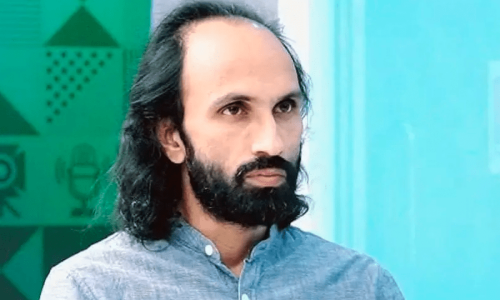OPERATION Zarb-i-Azb against the TTP and its associated forces is in full swing. While the operation appears to enjoy public support, one must understand the nature of the conflict and its significance for Pakistan.
For years, the categorisation of the conflict in Fata has been contested. Recent legislation concerning Fata — including the Actions (in Aid of Civil Power) Regulation 2011 (AACP) — suggests that the federation has started recognising the conflict in Fata as a non-international armed conflict (NIAC) under international law.
Previously, the conflict was characterised as internal disturbances. While the AACP is far from according adequate protections required under International Humanitarian Law (IHL), it frequently utilises IHL jargon, and is reflective of the IHL framework when it outlines the treatment and limited protections afforded to ‘miscreants’.
Under international law, two factors determine whether violence crosses the threshold to be classified as an NIAC: the conflict’s intensity and organisation of the parties to the conflict. The intensity test provides that an NIAC should be “similar to an international war”, but the conflict itself must be confined within the boundaries of a particular country.
The state must regain control over its territory.
The nature of engagement between state forces and militants in Fata confirms the presence of an NIAC. International criminal tribunals have found the existence of an NIAC in much lower levels of conflict intensity. There have been recognised NIACs of shorter duration, with smaller scale armed engagement, smaller troop deployments, fewer types of weapons used and targets identified, lower organisational capacities of militant outfits and fewer displaced persons.
The existence of an NIAC does not automatically mean that the sovereignty of a nation is undermined. In fact, recognising the conflict as an NIAC provides the state sanction under IHL to militarily defeat its adversary with lower levels of due process than what is available during times of peace.
Under international law the state can re-establish control over its territory in order to defend its national unity and territorial integrity with the caveat that other states cannot use the presence of an NIAC as justification for intervening, directly or indirectly. Furthermore, the presence of an NIAC does not exclude the applicability of domestic criminal law to militants, but ensures safeguards for civilians in conflict zones.
Basic protections under Common Article 3 of the Geneva Conventions are applicable in any armed conflict. Acts prohibited are the mutilation, cruel, humiliating and degrading treatment and torture of persons; taking of hostages; and the passing of sentences and the carrying out of executions without previous judgement pronounced by a regularly constituted court. There is also the requirement that the wounded and sick be collected and cared for.
Historically, Pakistan has been reluctant to accept the conflict in Fata as an NIAC, probably because it has feared international recognition of militant outfits or the conferral of legal status that grants them the privileges of combatants. These fears are misplaced, as the TTP is abhorred by nearly all states, and viewed as a global terrorist outfit by Security Council members.
Under international law, status principally depends on actual and sustained control and authority over the territory in conflict rather than the recognition militants receive from third states.
An NIAC is presented in a state when “dissident armed forces or other organised armed groups … under responsible command, exercise such control over a part of its territory as to enable them to carry out sustained and concerted military operations”. Only when such organisation, command, control and capacity are disrupted does one come out of a non-international armed conflict. Without such organisation or control, the militants have no legitimacy whatsoever.
The federation should regain control over its territory and establish its writ in the troubled regions. This will automatically exhaust any legitimacy that the TTP claims to possess in Fata. However, the armed forces must fight this war with transparency, and in compliance with IHL, which would mean that Common Article 3 protections are afforded and civilian immunity is fully preserved.
All civilians, including IDPs, should be adequately cared for and provided all basic facilities and protections. Reputed journalists should be embedded with the forces and given complete access to information so they can apprise the public of the ground realities.
The ICRC should be allowed a sizeable presence in the region. Such measures would prevent violations of IHL by all warring parties, and any war crimes committed by the TTP would further discredit them. Such steps would also reinforce the absolute legitimacy of the operation in the eyes of the international community. Pakistan has the wherewithal to militarily win this war in light of geo-political realities and the asymmetry of armed force. n
The writer is an associate professor of public international law at LUMS.
Published in Dawn, July 1st, 2014












































Dear visitor, the comments section is undergoing an overhaul and will return soon.